

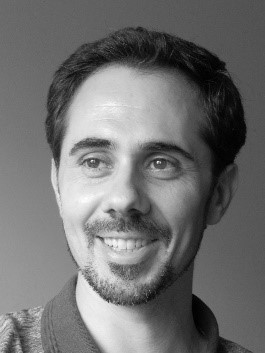
Eduardo V. Castro is a staff member at the Physics and Astronomy Department of the Faculty of Sciences of University Porto (UP). After his PhD, obtained from UP in 2008, he was a visiting post-doc at MPI-PKS in Dresden, and a Juan de la Cierva post-doc at ICMM-CSIC in Madrid. In 2012 he joined IST at University of Lisbon as an Assistant Professor, and moved to UP in 2018. He is also an associate member at CSRC – Computational Science Research Center in Beijing, China since 2012. E. V. Castro has a background in Theoretical Condensed Matter Physics, with focus on phenomenological descriptions of low dimensional systems. He is the author of 40 scientific articles which has been cited over 2300 times.
Talk: Topological matter: effects of disorder and interactions
.jpg) João Ventura completed his PhD in Physics in the University of Porto (UP) in 2006 and is a Senior Researcher at the Institute of Physics of Materials of the University of Porto (IFIMUP-IN), since 2008. Currently, leads the Nano- and Spin-Electronics area of IFIMUP-IN, supervising 2 post-docs, 3 PhD students and several undergraduates. Since 2012, he is the Vice-President of IFIMUP-IN and of the Micro- and Nano-Fabrication Unit of the University of Porto (CEMUP-MNTEC) and an invited professor at the Physics and Astronomy Department of the UP. He was the Principal Investigator (PI) of 3 FCT and 1 EU-funded projects. He completed the supervision of 3 PhD and 15 MSc students and published 4 book chapters, 159 papers in peer review journals (including Nat. Nanotech., Phys. Rev. Lett., J. Mater. Chem., J. Mater. Chem. A) with over 1650 citations and an h-index of 21. Complementary, his research led to patents (2), plenary (1), invited (6), oral (50) and poster (100) communications in international conferences. His work was also recently granted awards from the European Space Agency (BIC award) and Repsol (RedEmprendia Solutions Repsol award).
João Ventura completed his PhD in Physics in the University of Porto (UP) in 2006 and is a Senior Researcher at the Institute of Physics of Materials of the University of Porto (IFIMUP-IN), since 2008. Currently, leads the Nano- and Spin-Electronics area of IFIMUP-IN, supervising 2 post-docs, 3 PhD students and several undergraduates. Since 2012, he is the Vice-President of IFIMUP-IN and of the Micro- and Nano-Fabrication Unit of the University of Porto (CEMUP-MNTEC) and an invited professor at the Physics and Astronomy Department of the UP. He was the Principal Investigator (PI) of 3 FCT and 1 EU-funded projects. He completed the supervision of 3 PhD and 15 MSc students and published 4 book chapters, 159 papers in peer review journals (including Nat. Nanotech., Phys. Rev. Lett., J. Mater. Chem., J. Mater. Chem. A) with over 1650 citations and an h-index of 21. Complementary, his research led to patents (2), plenary (1), invited (6), oral (50) and poster (100) communications in international conferences. His work was also recently granted awards from the European Space Agency (BIC award) and Repsol (RedEmprendia Solutions Repsol award).
Talk: Triboelectric nanogenerators: from fundamental concepts to applications in harsh environments
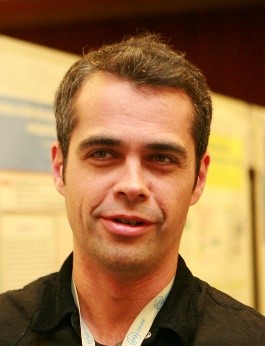 Luis Pereira was born in Lisbon, Portugal, in 1977. He received his engineering degree in Materials Science in 2001 and finished a PhD in Microelectronics and Optoelectronics in 2008 at Universidade Nova de Lisboa, Portugal. His PhD work was focused on polycrystalline silicon and high k dielectrics for application in TFT. The expertise gained on oxide materials for electronics allowed focusing his post-doc activities on the development of printed inorganic nanostructured materials for chromogenic, electronic, and electrochemical devices on paper and plastic substrates. He was involved in the team that demonstrated for the first time transistors made of oxides with paper as dielectric. He has authored and coauthored 175 publications in peer-reviewed journals and proceedings of the ISI with more than 5500 citations and has an h-index factor of 38 (ORCID ID: 0000-0001-8281-8663). He is currently associate professor at DCM-FCT/UNL and researcher at CENIMAT/I3N where he coordinates and participates in R&D projects. He was granted in 2015 a Starting Grant of the European Research Council (ERC) on the development of cellulose nanocomposites for paper electronics (New-Fun, project 640598). His current research interests are on the design and synthesis of 1D, 2D, and 3D inorganic and hybrid nanostructures, chiral cellulose nanocomposites, functional micro- and nanofibers and their integration on chromogenic, electronic, and electrochemical devices.
Luis Pereira was born in Lisbon, Portugal, in 1977. He received his engineering degree in Materials Science in 2001 and finished a PhD in Microelectronics and Optoelectronics in 2008 at Universidade Nova de Lisboa, Portugal. His PhD work was focused on polycrystalline silicon and high k dielectrics for application in TFT. The expertise gained on oxide materials for electronics allowed focusing his post-doc activities on the development of printed inorganic nanostructured materials for chromogenic, electronic, and electrochemical devices on paper and plastic substrates. He was involved in the team that demonstrated for the first time transistors made of oxides with paper as dielectric. He has authored and coauthored 175 publications in peer-reviewed journals and proceedings of the ISI with more than 5500 citations and has an h-index factor of 38 (ORCID ID: 0000-0001-8281-8663). He is currently associate professor at DCM-FCT/UNL and researcher at CENIMAT/I3N where he coordinates and participates in R&D projects. He was granted in 2015 a Starting Grant of the European Research Council (ERC) on the development of cellulose nanocomposites for paper electronics (New-Fun, project 640598). His current research interests are on the design and synthesis of 1D, 2D, and 3D inorganic and hybrid nanostructures, chiral cellulose nanocomposites, functional micro- and nanofibers and their integration on chromogenic, electronic, and electrochemical devices.
Talk: Circularly Polarized Light Detection using Cellulose Nanocrystals Photonic Dielectrics
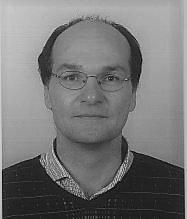 Michael Belsley - carried out his PhD thesis work with of Dr. John Cooper at the Joint Institute for Laboratory Astrophysics at the University of Colorado in the area of far-wing spectroscopy of atomic collisions in the gas phase. He then worked to develop various four-wave mixing techniques to study gas phase collisions with Professor Paul Ewart at the University of Oxford, followed by work on the generation and characterization of non-classical states of light with Professor Michael Raymer at the University of Oregon. In 1992 he established his own research group at the University of Minho in Braga, Portugal. Here he has worked primarily as an experimentalist focusing on several different areas including: dynamic light scattering, the development and characterization of non-linear optical materials, characterization of textiles and display screens using coherent optical techniques, cold atomic gases (in collaboration with Professor Alain Aspect's group), the propagation of light in random scattering media, and most recently developing ultrafast nonlinear spectroscopic techniques to study the dynamics of energy transfer in complex systems and environments.
Michael Belsley - carried out his PhD thesis work with of Dr. John Cooper at the Joint Institute for Laboratory Astrophysics at the University of Colorado in the area of far-wing spectroscopy of atomic collisions in the gas phase. He then worked to develop various four-wave mixing techniques to study gas phase collisions with Professor Paul Ewart at the University of Oxford, followed by work on the generation and characterization of non-classical states of light with Professor Michael Raymer at the University of Oregon. In 1992 he established his own research group at the University of Minho in Braga, Portugal. Here he has worked primarily as an experimentalist focusing on several different areas including: dynamic light scattering, the development and characterization of non-linear optical materials, characterization of textiles and display screens using coherent optical techniques, cold atomic gases (in collaboration with Professor Alain Aspect's group), the propagation of light in random scattering media, and most recently developing ultrafast nonlinear spectroscopic techniques to study the dynamics of energy transfer in complex systems and environments.
Talk: Probing structure and dynamics using Nonlinear Optics
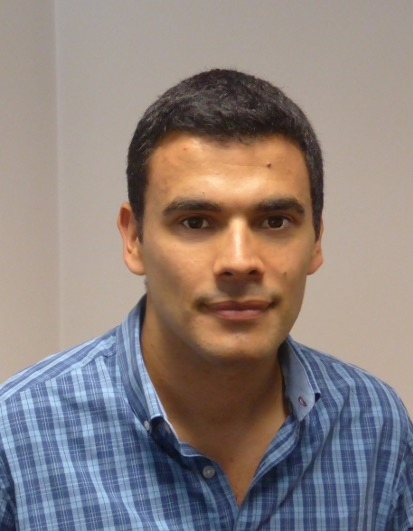 Nuno Araújo- is an Assistant Professor at the Department of Physics of the Faculty of Sciences, Universidade de Lisboa. He obtained his PhD from University of Minho in 2009, with a 3-month internship at the Los Alamos National Laboratory in the US. He then moved to ETH Zurich for a postdoc in the group of Prof. Hans Herrmann where, after 3 years, he became a senior assistant. In 2014, he was awarded a 5-year fellowship as Principal Investigator by FCT to work at the Universidade de Lisboa, where he became an Assistant Professor in September 2016. Since 2018, Nuno Araújo is the Scientific Coordinator of the Center for Theoretical and Computational Physics. He has been active in supervising at all levels, includind the supervision of 4 Postdoc fellows, 11 PhD students, and 19 Master Students. With students and collaborators, he has been performing computational and analytical research in nonequilibrium Statistical Physics resulting in ~100 publications that include Nature Comm., Science Adv., PNAS, Phys. Rev. Lett., and Adv. Coll. Int. Sci. The work has been highlighted as editor suggestions (PRL), editor choices (EPL), covers of PRL, and reports in the media.
Nuno Araújo- is an Assistant Professor at the Department of Physics of the Faculty of Sciences, Universidade de Lisboa. He obtained his PhD from University of Minho in 2009, with a 3-month internship at the Los Alamos National Laboratory in the US. He then moved to ETH Zurich for a postdoc in the group of Prof. Hans Herrmann where, after 3 years, he became a senior assistant. In 2014, he was awarded a 5-year fellowship as Principal Investigator by FCT to work at the Universidade de Lisboa, where he became an Assistant Professor in September 2016. Since 2018, Nuno Araújo is the Scientific Coordinator of the Center for Theoretical and Computational Physics. He has been active in supervising at all levels, includind the supervision of 4 Postdoc fellows, 11 PhD students, and 19 Master Students. With students and collaborators, he has been performing computational and analytical research in nonequilibrium Statistical Physics resulting in ~100 publications that include Nature Comm., Science Adv., PNAS, Phys. Rev. Lett., and Adv. Coll. Int. Sci. The work has been highlighted as editor suggestions (PRL), editor choices (EPL), covers of PRL, and reports in the media.
Talk: Non-equilibrium collective dynamics: from passive to active particles
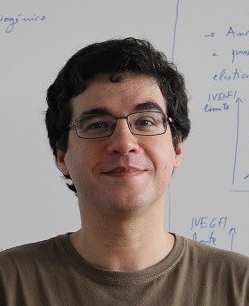 Rui Travasso - In 1999 Rui Travasso finished his degree in Physics at the University of Porto. In 2003, at the University of Manchester, UK, he completed his Ph.D. on Theoretical Soft Condensed Matter Physics. After the Ph.D. he moved to the University of Pittsburgh where he worked on how hierarchical structures can be found in phase separating photo-reactive polymer blends. Afterwards, during his postdoctoral period at the University of Lisbon, he started to work on biological related themes, first on protein folding dynamics, and then, after having been awarded the "Gulbenkian Estímulo à Investigação" Prize in 2007, on the mathematical modeling of tumor and vessel growth. Since 2008 Rui Travasso works at the University of Coimbra studying cell movement, tumor growth, blood vessel growth, and tissue irrigation. He is also motivated by promoting Physics in high schools, having co-written Physics and Chemistry exercise-solving books and being the leader of the Portuguese team in international Physics competitions since 2011. He is currently an assistant professor at the Department of Physics of the University of Coimbra.
Rui Travasso - In 1999 Rui Travasso finished his degree in Physics at the University of Porto. In 2003, at the University of Manchester, UK, he completed his Ph.D. on Theoretical Soft Condensed Matter Physics. After the Ph.D. he moved to the University of Pittsburgh where he worked on how hierarchical structures can be found in phase separating photo-reactive polymer blends. Afterwards, during his postdoctoral period at the University of Lisbon, he started to work on biological related themes, first on protein folding dynamics, and then, after having been awarded the "Gulbenkian Estímulo à Investigação" Prize in 2007, on the mathematical modeling of tumor and vessel growth. Since 2008 Rui Travasso works at the University of Coimbra studying cell movement, tumor growth, blood vessel growth, and tissue irrigation. He is also motivated by promoting Physics in high schools, having co-written Physics and Chemistry exercise-solving books and being the leader of the Portuguese team in international Physics competitions since 2011. He is currently an assistant professor at the Department of Physics of the University of Coimbra.
Talk: Influence of Matrix Rigidity on Blood Vessel Growth
Ricardo Ferreira
INL - International Iberian Nanotechnology Laboratory, Braga
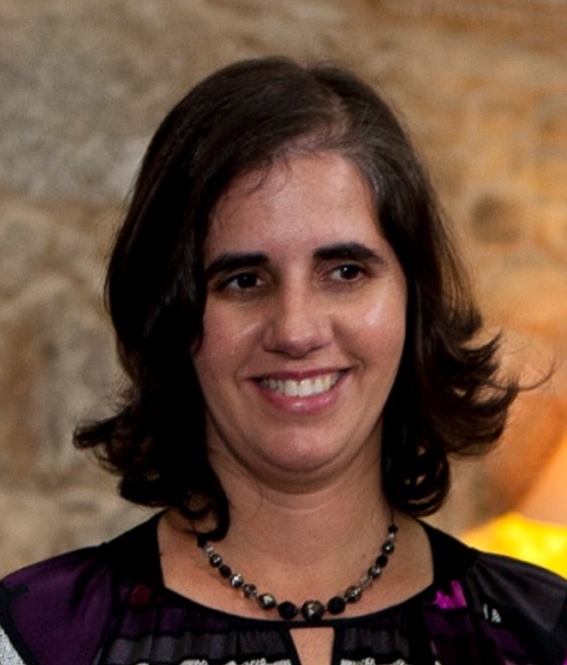 Susana Cardoso de Freitas was born in Lisbon in 1973. She received the Ph.D. degree in Physics in 2002, from the Instituto Superior Tecnico, Universidade de Lisboa. In 2002 she was a “Co-op Pre-Professional Engineer” at IBM, T.J.Watson Research Center (USA). In 2002 she became a researcher at INESC-MN and the co-leader of the Magnetics & Spintronics group since 2006 with intensive collaborations with industrial partners for technology transfer related with sensors. She is an Associated Professor at the Physics Department (IST) since 2015, and is responsible for student coordination and educational activities related with nanoelectronics, microfabrication and spintronics. She has been invited for several international conferences and is co-author of over 290 publications (researcher ID: B-6199-2013). Her research interests include advanced thin films, microfabrication processes in large area wafers, and sensors for robotics, biomedical and industrial applications. Dr. Cardoso de Freitas was a recipient of the Honorable Mention in Scientific Awards Universidade de Lisboa/Santander in 2016, 2017 and 2018, and the Magnetic Society of Japan Distinguished Publication in 2014, and she was one of the team members awarded as 2nd finalist for the EU Descartes Prize for Research in 2004.
Susana Cardoso de Freitas was born in Lisbon in 1973. She received the Ph.D. degree in Physics in 2002, from the Instituto Superior Tecnico, Universidade de Lisboa. In 2002 she was a “Co-op Pre-Professional Engineer” at IBM, T.J.Watson Research Center (USA). In 2002 she became a researcher at INESC-MN and the co-leader of the Magnetics & Spintronics group since 2006 with intensive collaborations with industrial partners for technology transfer related with sensors. She is an Associated Professor at the Physics Department (IST) since 2015, and is responsible for student coordination and educational activities related with nanoelectronics, microfabrication and spintronics. She has been invited for several international conferences and is co-author of over 290 publications (researcher ID: B-6199-2013). Her research interests include advanced thin films, microfabrication processes in large area wafers, and sensors for robotics, biomedical and industrial applications. Dr. Cardoso de Freitas was a recipient of the Honorable Mention in Scientific Awards Universidade de Lisboa/Santander in 2016, 2017 and 2018, and the Magnetic Society of Japan Distinguished Publication in 2014, and she was one of the team members awarded as 2nd finalist for the EU Descartes Prize for Research in 2004.
Talk: Advances in spintronic sensor materials and architectures